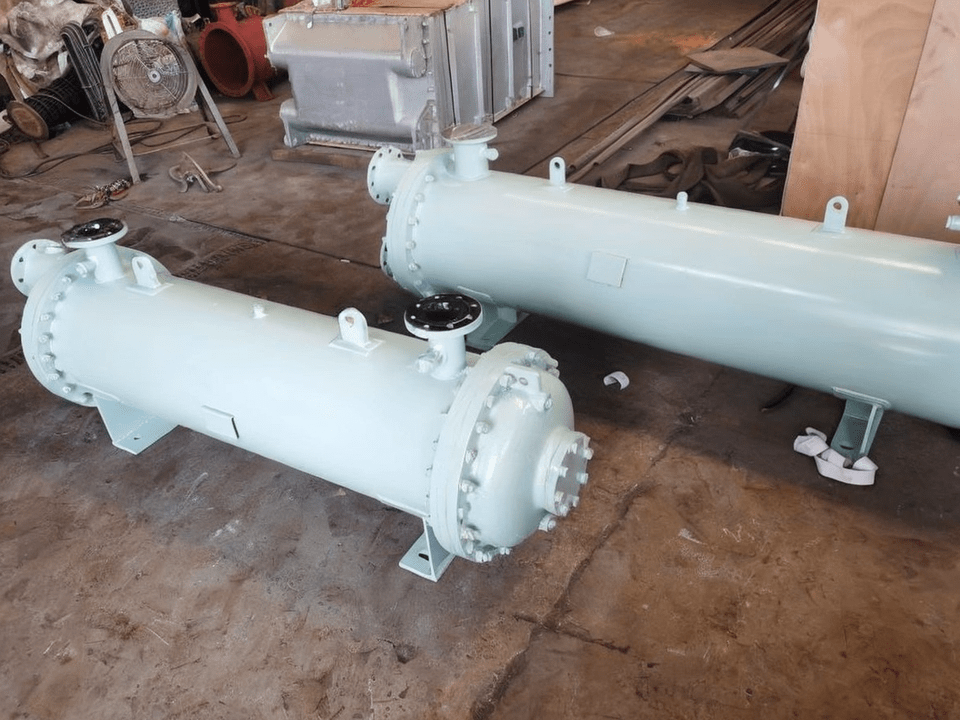Advantages of Air-Cooled Oil Coolers
Air-cooled oil coolers are widely preferred in various industries due to their simplicity, reliability, and efficiency. Below are the key advantages:
1. No Coolant Required (Self-Contained System)
- Unlike liquid-cooled systems, air-cooled oil coolers do not need water or coolant, eliminating:
- Risk of coolant leaks.
- Complex plumbing (hoses, pumps, radiators).
- Coolant maintenance (flushing, refilling).
2. Lightweight & Compact Design
- Typically made of aluminum, making them much lighter than liquid-cooled alternatives.
- Ideal for applications where weight matters (e.g., automotive, aerospace, motorcycles).
3. Lower Maintenance & Fewer Failure Points
- No water pump, radiator, or coolant hoses to fail.
- Fewer components mean longer lifespan and reduced servicing costs.
4. Better Performance in High Ambient Temperatures
- Since they rely on airflow rather than liquid cooling, they perform well in:
- Hot climates (desert, tropical regions).
- High-load conditions (towing, off-roading, racing).
5. Energy Efficient (No Extra Power Needed)
- Most air-cooled oil coolers do not require electric fans (rely on natural airflow).
- If a fan is used, it consumes less power than a liquid cooling pump.
6. Faster Warm-Up in Cold Conditions
- Unlike liquid-cooled systems, air-cooled oil coolers:
- Do not overcool oil in cold weather.
- Allow oil to reach optimal operating temperature faster, reducing engine wear.
7. Cost-Effective Solution
- Cheaper to manufacture (no need for a secondary cooling loop).
- Easier to install (no coolant lines or complex routing).
8. No Risk of Oil-Water Mixing (Contamination) In liquid-cooled oil coolers, a failed internal seal can mix oil and coolant, causing engine
- damage.
- Air-cooled designs eliminate this risk entirely.
9. Versatile Mounting Options
- Can be installed in tight spaces (no need for a radiator location).
- Often mounted in front of the engine, behind grilles, or underbody for optimal airflow.
10. Ideal for Harsh Environments
- Dusty, muddy, or corrosive conditions? No problem—air-cooled systems handle it better than liquid-cooled ones (no clogged radiators or corroded water jackets).
Comparison: Air-Cooled vs. Liquid-Cooled Oil Coolers
| Feature | Air-Cooled Oil Cooler | Liquid-Cooled Oil Cooler |
| Cooling Medium | Air | Coolant/Water |
| Weight | Lighter | Heavier (due to coolant system) |
| Maintenance | Low | Higher (coolant changes, leaks) |
| Cold Weather Performance | Better (no overcooling) | Risk of overcooling |
| Heat Dissipation | Good (depends on airflow) | Excellent (consistent cooling) |
| Cost | Lower | Higher (more components) |
| Failure Risk | Lower (no coolant leaks) | Higher (seal failures, pump issues) |
Best Applications for Air-Cooled Oil Coolers
◉ Automotive (cars, trucks, motorcycles)
◉ Off-Road & Racing Vehicles (better heat tolerance)
◉ Aircraft & Helicopters (weight savings)
◉ Marine & Industrial Equipment (durability in harsh conditions)
◉ Wind Turbines & Heavy Machinery (low-maintenance solution)
When to Choose Liquid-Cooled Instead?
While air-cooled oil coolers are excellent for most uses, liquid-cooled systems are better for:
◉ Extreme, continuous high-heat conditions (e.g., turbocharged drag racing).
◉ Precision temperature control needed (e.g., high-performance engines with tight thermal limits).
